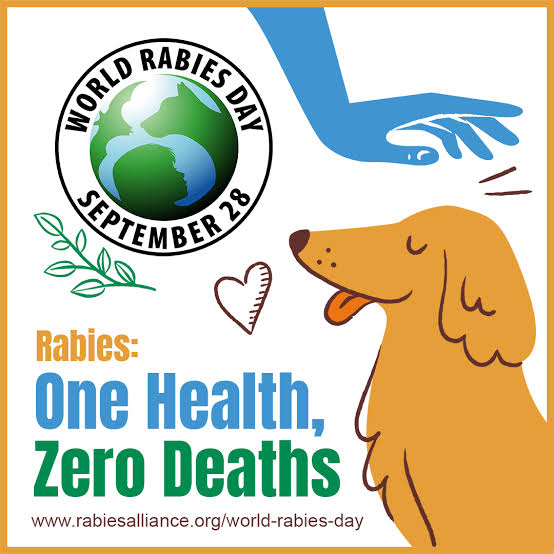By Chioma Nnodim
Federal Capital Territory Administration, FCTA, Agriculture and Rural Development Secretariat has renewed commitment towards eradication of the transmission and spread of dog and cat mediated rabies infections.
The Mandate Secretary for the secretariat, Malam Abubakar Ibrahim, made this known to Journalists at the commemoration of the 2022 World Rabies Day, with the theme; “One Health, Zero Deaths,” held at Nyanya Veterinary Clinic, on Wednesday in Abuja.
According to Ibrahim, “September 28 of every year is a day set aside by the WHO to not only to raise awareness about rabies disease, but demonstrate practical commitments and actions by nations towards the prevention, control and eradication of the disease.
The Mandate Secretary said that the risks of transmission and spread of the dog and cat disease in the FCT was very high being a cosmopolitan city, with a fast growing human and animal population.
He disclosed that the FCT Minister of State, Dr Ramatu Aliyu had approved the commencement of a free vaccination exercise through the length and breadth of the FCT.
Ibrahim added that already, Veterinary Doctors and Animal Health workers of the Secretariat have already been mobilized to ensure the success of the exercise.
He said that the target of the FCT Administration was to embark on a five year annual vaccination campaign against the dreaded zoonotic disease that was a menace not only in Nigeria but the world over.
“I will like to call on dog and cat owners in the FCT to take advantage of this exercise which will be going on simultaneously in the six Area Councils of the FCT for the next four weeks to vaccinate their animals to guarantee both for their safety and that of their pets. This will help in improving the general health and well-being of FCT populace,” he said.
The secretary revealed that records have shown that in Nigeria, about 55,000 people die annually from dog and cat mediated rabies infections.
He also explained that even though cats and other wild animals are major carriers of the disease, dogs account for over 99 per cent of recorded infections.
“More worrisome to health practitioners is the fact that the fatality rate of the disease ranks amongst the deadliest zoonotic diseases because once a rabies infection is established, there is no effective cure and the risk of transmission is very high.
“It is against this backdrop that the FCT Administration through the Agriculture and Rural Development Secretariat has adopted a multi-targeted approach to effectively combat the disease.
“These includes; embarking on aggressive sensitization campaign with the involvement of qualified Animal Health and information management experts and strengthening the capacities of Veterinary personnel as well as facilities to effectively manage rabies cases.”
He appreciated the Federal Ministry of Agriculture and Rural Development Nigeria Veterinary Medical Association, Nigeria Veterinary Research Institute, and others for their relentless support over the years in the fight against the disease.
Ibrahim expressed optimism that the provision of 47,000 doses of vaccines and other materials by the Federal Ministry of Agriculture and Rural Development would go a long way in helping the FCT to eradicating the dreaded disease.
This, according to him, will ensure the attainment of the declaration of the World Health Organization target of achieving “zero human rabies deaths by 2030.”
Earlier, the Director, Veterinary Services at the secretariat, Dr Regina Adulugba said the administration was committed to achieve a zero record of the virus in the territory hence the extension of the exercise to neighbouring states state of Nasarawa.
While lamenting the challenge stray dogs pose to achieving the administration goals, she stressed that ending the menace of stray dogs in the streets of FCT is key to eliminating rabies.
She further appealed to pet owners to take advantage of the exercise and ensure that their pets are vaccinated to prevent the spread of the virus.







